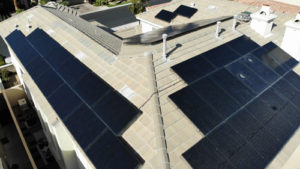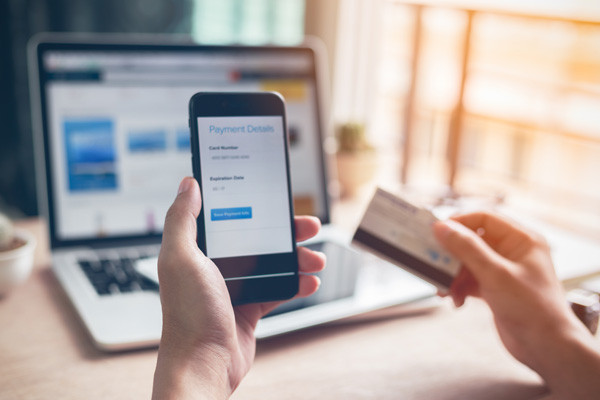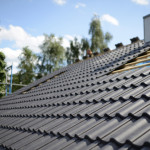How much is a Solar Lease?

Solar lease agreements allow homeowners to obtain solar panels in a manageable and hands-off manner. In simple terms, you lend your roof to a solar service provider, and they lend you equipment to generate clean, sustainable energy. Here's how it works.
The agreement you sign with a company that installs and manages your solar system is usually for $0 down. A fixed monthly payment is made to lease the solar system from this company. It's very similar to financing a vehicle. You may not notice a significant difference in your monthly electricity bills as these payments are almost the same as your old monthly electric bills.
Your monthly lease payments may increase over the term of your lease. This is due to future increases in energy prices. Your provider will probably limit the increase to 3%. You will be able to save money even if utility rates rise. However, it is important to read all terms. Ask your solar provider for clarifications if you are unsure.
An experienced local solar energy company, Nevada Solar Group, will install and maintain your solar panels. They might offer insurance and additional warranties. You should carefully read the terms. In certain cases, you are still responsible for replacing damaged equipment.
Solar Leasing Contracts
It is important to carefully read and understand the terms before you sign a lease agreement. Below are some options and terms to be aware of when leasing solar panels.
- Down payment - Is there a charge for signing the contract? At installation? At inspection? Leases are usually subject to zero down payments by Nevada Solar Group.
- First monthly payment - What is the initial monthly cost? Lease agreements may offer the possibility to prepay some electricity to reduce your monthly payments. This is similar to how you would finance a car.
- Rate cap - Electricity prices rise by about 2% to 5% every year. The monthly amount that you pay Nevada Solar Group to supply your power could also go up slightly each year. This increase will be limited by your lease agreement. You will see that your monthly payments do not increase more than a fixed percentage. This is usually about 1% to 5%.
How long will the lease term be and what happens when the contract expires?
Traditional solar leases typically last between 20 and 30 years, which is roughly the lifetime of your solar panel.
Your options at the end of the initial lease term include renewing the contract for 1-10 years, upgrading to a better solar panel system, signing another contract, or getting rid of the system.
Advantages and Disadvantages of leasing solar panels
Advantages
Leasing solar panels means that you can replace your monthly utility bill by paying a monthly lease payment. You also don't have to pay any cash upfront. There are very few or no solar installation costs and maintenance fees. You could also reap the benefits of solar panels for other utility costs, such as home heating via solar power, solar pool heating, and solar water heater installation.
The additional benefit of installing your new solar energy system is the ability to select the type of solar panel, mounting style, and size of the solar inverter.
Disadvantages
Leases usually mean that you don't have the option to buy when you are done. Leasing can also mean you lose out on the price advantage of selling electricity with Nevada Solar Group metering. This means that you will have to sell all power you use back to your local utility company.
Be aware that not all leases will be available in the same area as your home. Before leasing, it is a good idea to do some research on the sun number of your home.
How does a solar lease compare to buying a solar power system?
Many factors can influence your decision. Nevada Solar Group can help you make the right decision. Nevada Solar Group offers online quotes.
Nevada Solar Group can help you, whether you want to own your system or make monthly lease payments. We have provided some statistics and products and services to help you make a decision.
Buying Solar Panels cost
Imagine a home with a power consumption of 600 kWh per month in Las Vegas. A 5-kilowatt system would be required to power the house. A homeowner could save up to 50% by purchasing an outright house for around $15,000
It could take 5 years for the product's cost to be paid off, thanks to a 30% federal tax credit as well as a variety of rebates and incentives offered by Las Vegas
Solar Panel Lease Cost
A 10-year lease would cost $100-$150 per month. This means that you'll spend between $12,000 and $18,000 each year. The solar panels will be yours at the end of the term. A lease can lower your total cost than a purchase, without having to make an upfront payment.
To get a complete analysis of your system and situation, use a solar calculator. It will estimate the costs and savings involved in installing a solar energy plant in your home.
Before Deciding to Lease or Buy Your Solar Power System
Compare the pros with your financial situation and solar goals to decide if buying or leasing is better for you. Nevada Solar Group can help you decide if you still have trouble. Whatever option you choose to reduce your energy bills and improve the sustainability of your home is just a few steps away.




























